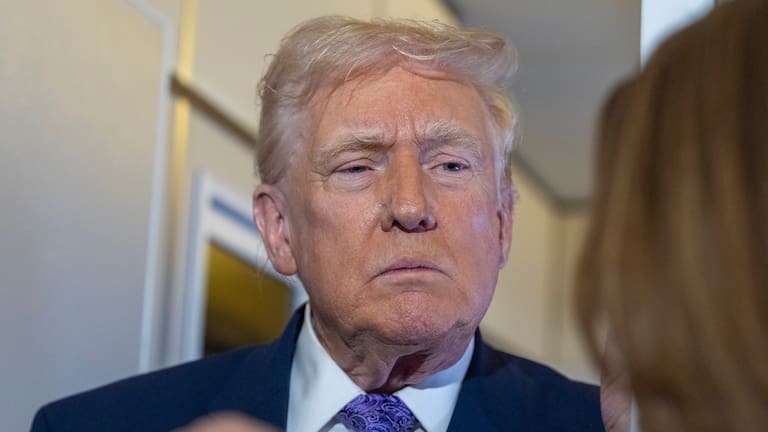The US election system can sometimes lead to quirky outcomes - like the person with the most votes losing the contest. 1News explains how this can happen.
On November 8, 2016, former Secretary of State Hillary Clinton conceded the US presidential election to then-businessman Donald Trump.
The world watched with jaws agape as a candidate who seemed to come out of nowhere defeated a politically established frontrunner with huge backing.
However, many were also left scratching their heads because glancing at the number of votes each candidate received suggested Clinton won the election - by almost 3 million votes.
So why did Trump take the Oval Office despite not winning the popular vote? 1News reached out to Auckland University lecturer Timothy Fadgen to find out.
What's up with the popular vote?
A US election has gone to the candidate who lost the popular vote twice in the last 25 years.
In the 2000 contest between George W Bush and Al Gore, Gore also won the popular vote by more than 500,000 votes but still lost the election.
Fadgen said this happens because of the system America uses to elect its President – the Electoral College.
Simply put, the Electoral College gives each state a certain number of "votes" to decide the President based on its number of legislators. Those votes are tallied on election night, and the first candidate to hit 270 out of 538 wins the race.
In 2016, Donald Trump won 304 electoral votes, while Hillary Clinton won 227.

A presidential election is usually decided by the swing states, which could go to either candidate, Fadgen said.
He said swing states were "existentially critical" to each party in the election, which is why presidential candidates campaign in only a select few regions leading up to election day.
Why does such a weird system exist?
The Electoral College is uniquely American.
As Fadgen explained, it all goes back to when the country was established and was an effort to make sure smaller states had a larger voice in federal politics.
"There were a number of compromises made by the founding fathers, so to speak, when they were getting the country organised," Fadgen said.
He said the system gives smaller states a much louder voice regarding federal policy.
"There was always a high percentage of voters who do not like the Electoral College. Most people prefer that a majority vote decide who the President is nationally. It kind of makes sense,” Fadgen said.

"[But] you go into small states, they don't share that opinion because they know they're on the losing end of that.
"Typically, if you abandoned that system and went to just 'whoever gets the most votes wins', most of the middle of the country wouldn't get a visit by a presidential candidate.
"The issues that people in those states care about would never register on the agenda of the political campaigns."
He said that while it was an "imperfect system", there was a "method to the madness".
A disproportional system?
Most states operate under a "winner takes all" model, meaning all electoral votes go to the state's winner.
This means that if 63.5% of Californians vote for the Democratic candidate and 34.3% vote for the Republican (like they did last election), all 54 of California’s electoral votes will go to the Democratic candidate, even though more Californians voted Republican than in any other state (including traditional Republican strongholds).
This approach can make some people feel their vote doesn't count, particularly in “safe” states.
The Electoral College also gives some voters more voting power than others.
We'll use California and Wyoming as examples.
In 2020, around 17.8 million Californians voted for 55 electoral college votes. This means each electoral vote was worth around 323,636 individual votes.
In Wyoming, 276,765 people turned out to vote for the state's three electoral college votes, which means each electoral vote was worth 92,255 individual votes.
This means a person’s vote in Wyoming has around 3.5 times more power than a person’s vote in California in terms of its influence on the Electoral College.
"So, this is an age-old debate in the country," Fadgen said.
"And unfortunately, I think it does come back to the fact that you're living in a federal system, and the president isn't ... elected by the people."
The importance of mobilisation

Fadgen said the crucial thing for both major parties under the US system is mobilising their base in the swing states because low voter turnout affects not only the presidency but all levels of government.
When Americans vote for the president, they will also vote for almost every aspect of government, including their congressperson, senator, state lawmakers and, in some cases, local politicians like mayors and sheriffs.
Fadgen believes this is why Joe Biden dropped out of the presidential race: an unenthusiastic base could lead to a low voter turnout.
"He was still polling a respectable amount, but it wasn't enough to win. And people were not concerned, like, 'Okay, we gotta get out to vote for him'. But like, 'he can't win. So, what's the point?'
"And once people start feeling like that, that's when all the alarms are going off because you could lose ... even more."
Follow all the latest from the US Election with 1News.co.nz and watch in-depth coverage on TVNZ+




















SHARE ME